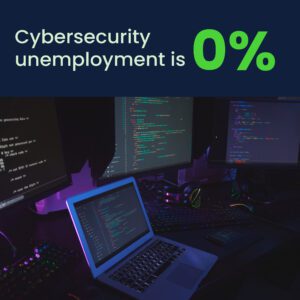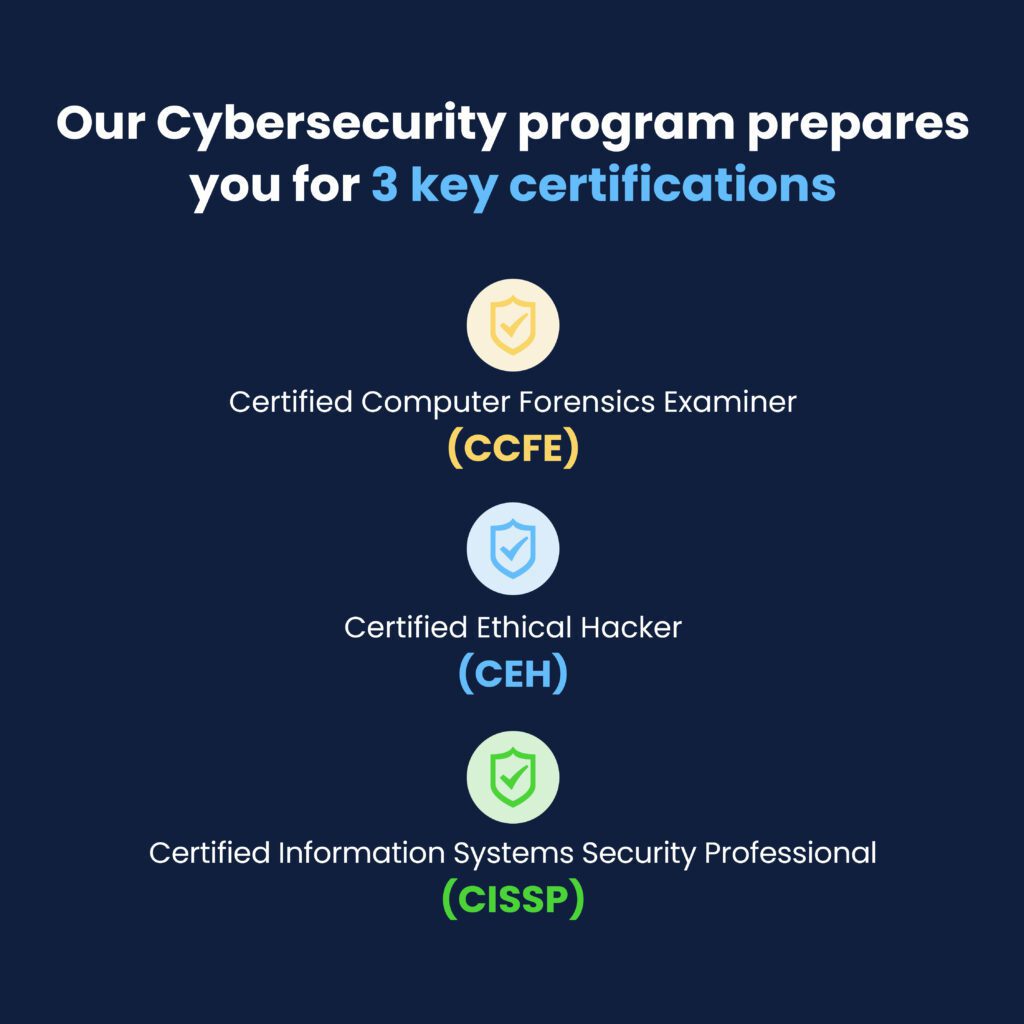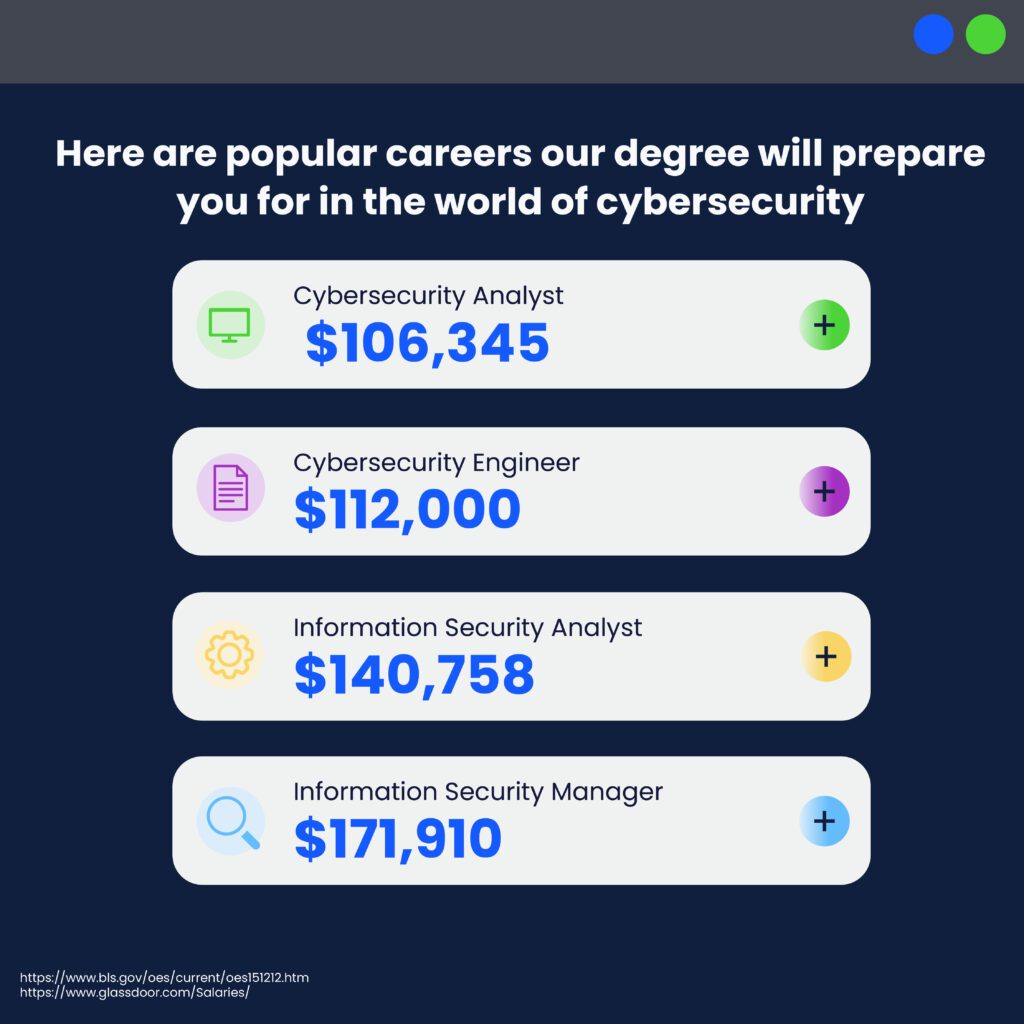Business administration, Cybersecurity, B.S.

In today’s interconnected world, cybersecurity stands as the digital shield protecting our information, privacy, and critical systems. At Chowan University, we’re not just teaching cybersecurity –– We’re creating defenders of our shared digital future.
Embark on a transformative journey into the dynamic landscape of digital protection, where you’ll be prepared to tackle the ever-evolving challenges of our tech-driven society. Our educational ethos revolves around empowering you to safeguard our digital world with integrity, innovation, and unwavering dedication.
Our mission is to empower the cybersecurity leaders of tomorrow by providing an innovative and comprehensive curriculum. We aim to redefine excellence in cybersecurity knowledge, arming our students with cutting-edge knowledge and hands-on experience to adapt and safeguard against evolving digital threats.
Certification & Industry Alignment

- Certified Information Systems Security Professional (CISSP)
- The Certified Information Systems Security Professional (CISSP) is a globally recognized certification that validates an individual’s expertise in designing, implementing, and managing a best-in-class cybersecurity program.
To qualify for this cybersecurity certification, students must pass the exam and have at least five years of cumulative, paid work experience in two or more of the eight domains of the (ISC) CISSP Common Body of Knowledge (CBK). While students will not have the professional experience to qualify for CISSP, the curriculum has been created to cover the relevant topics for this exam.
- The Certified Information Systems Security Professional (CISSP) is a globally recognized certification that validates an individual’s expertise in designing, implementing, and managing a best-in-class cybersecurity program.
- Certified Ethical Hacker (CEH)
- The Certified Ethical Hacker (CEH) is a prestigious certification that demonstrates an individual’s proficiency in identifying vulnerabilities and weaknesses in computer systems, using the same knowledge and tools as a malicious hacker, but in a lawful and legitimate manner to assess the security posture of a target system.
The CEH exam is a 4-hour, 125 multiple choice questions exam. The work experience requirements for CEH vary depending on a student’s chosen path to obtaining certification. If a student completes EC-Council Training, they can take the exam without going through the application process. Without EC-Council Training, a student needs at least 2 years of work experience.
- The Certified Ethical Hacker (CEH) is a prestigious certification that demonstrates an individual’s proficiency in identifying vulnerabilities and weaknesses in computer systems, using the same knowledge and tools as a malicious hacker, but in a lawful and legitimate manner to assess the security posture of a target system.
- Certified Computer Forensics Examiner (CCFE)
- The Certified Computer Forensics Examiner (CCFE) is a specialized certification that signifies an individual’s expertise in conducting thorough and effective computer forensics investigations, including the ability to gather, analyze, and preserve digital evidence in a legally admissible way.
There are no work experience requirements for the CCFE exam. The exam consists of two parts, a traditional multiple choice, true/false and multiple answer examination and a take-home practical exam. The multiple-choice exam consists of 50 questions randomly pulled from a master list of questions.
- The Certified Computer Forensics Examiner (CCFE) is a specialized certification that signifies an individual’s expertise in conducting thorough and effective computer forensics investigations, including the ability to gather, analyze, and preserve digital evidence in a legally admissible way.

This new program available starting fall 2024 is through a partnership with the Lower Cost Models Consortium (LCMC) and Rize Education. The LCMC is a strategic partnership of private colleges and universities across the country collaborating with Rize Education to provide access to a cutting-edge curriculum that prepares students for successful careers.


